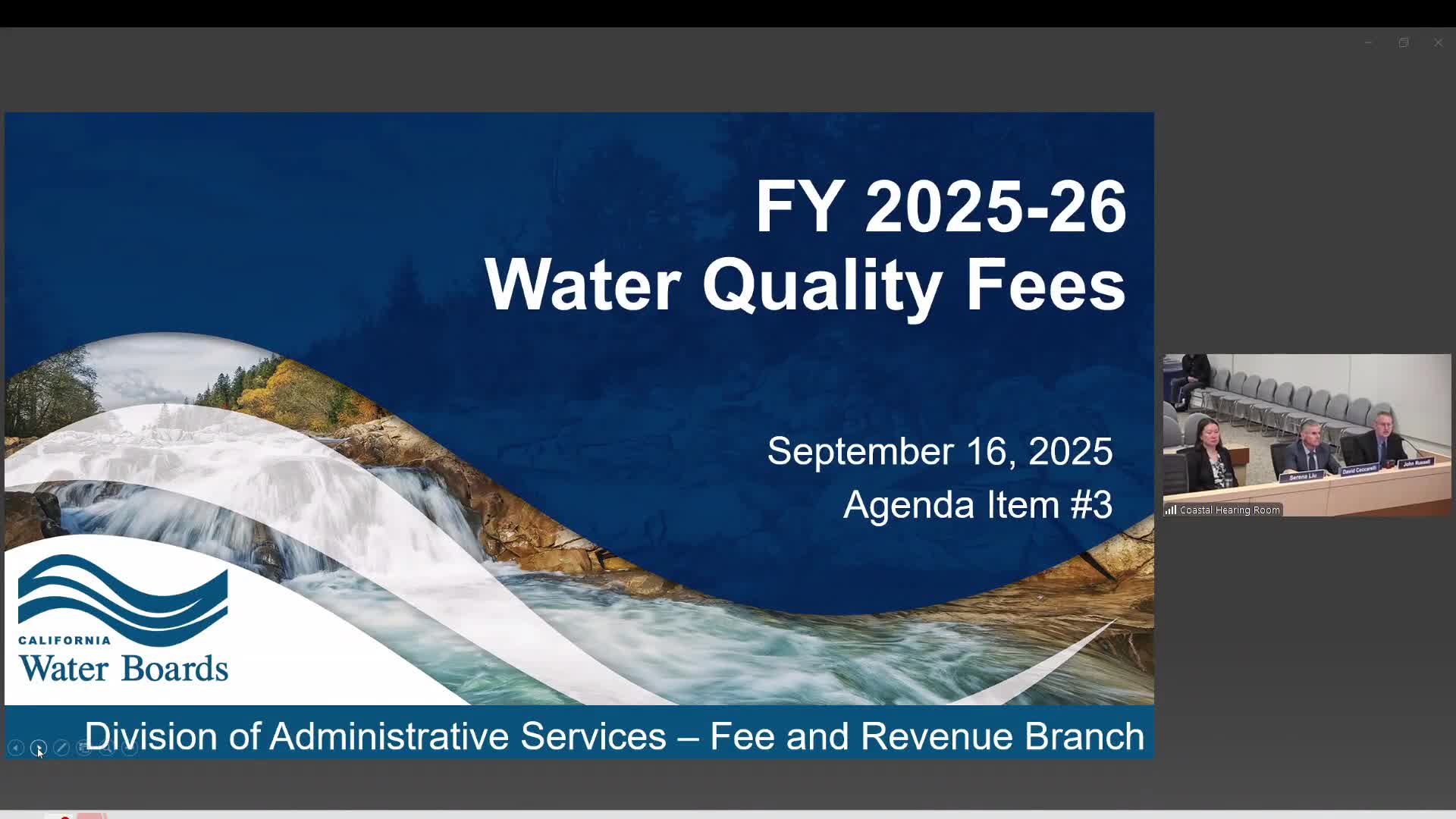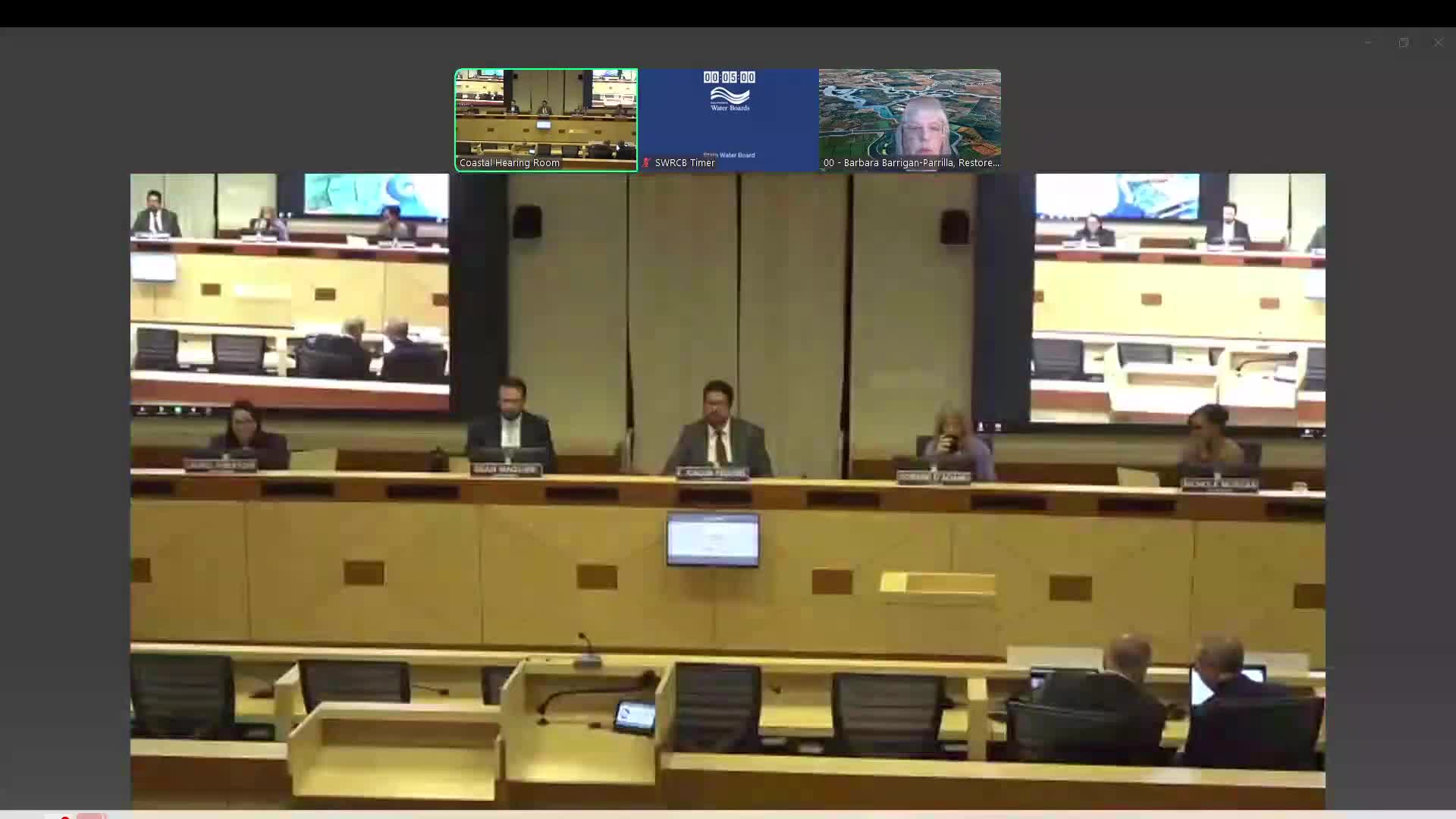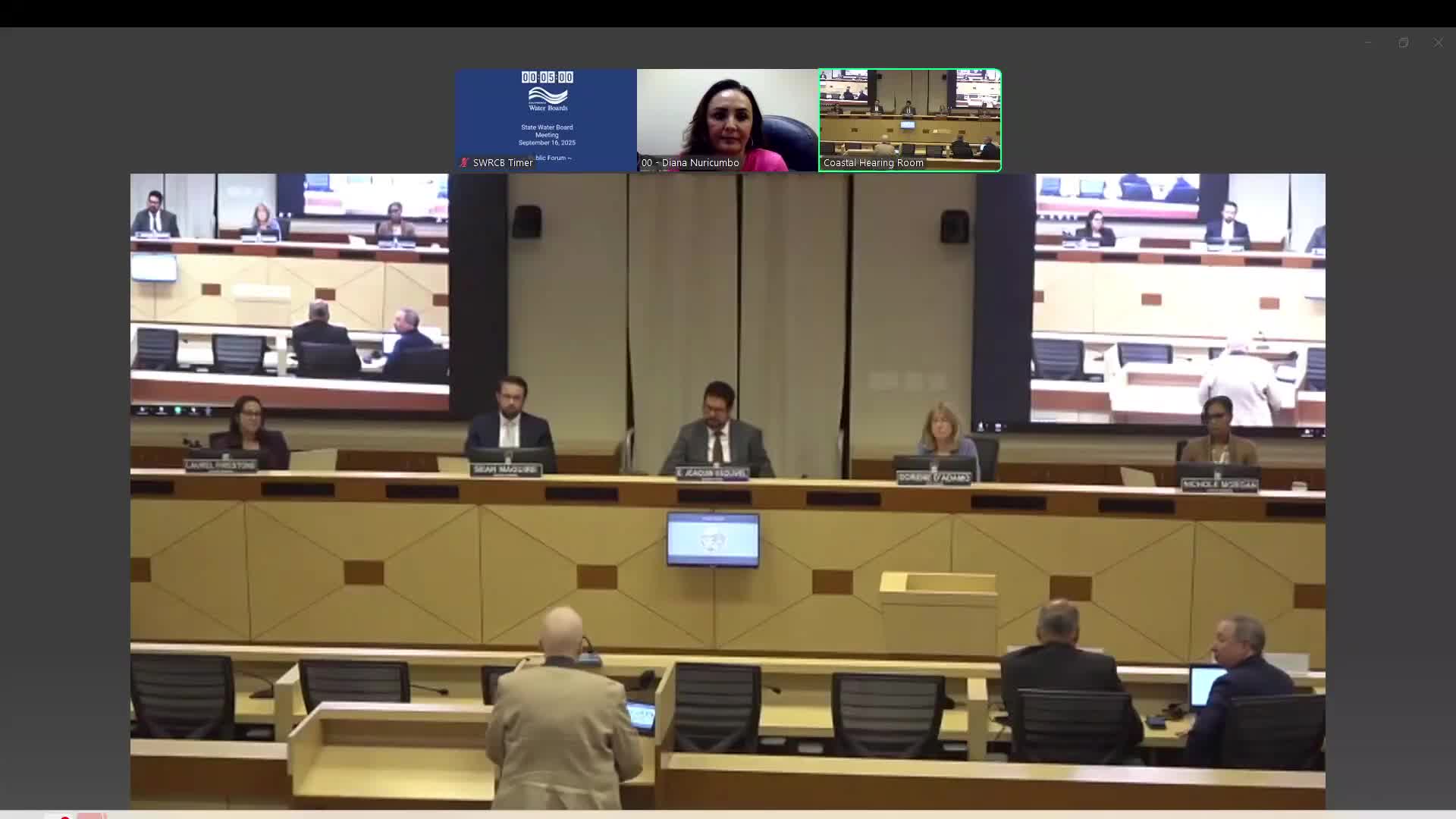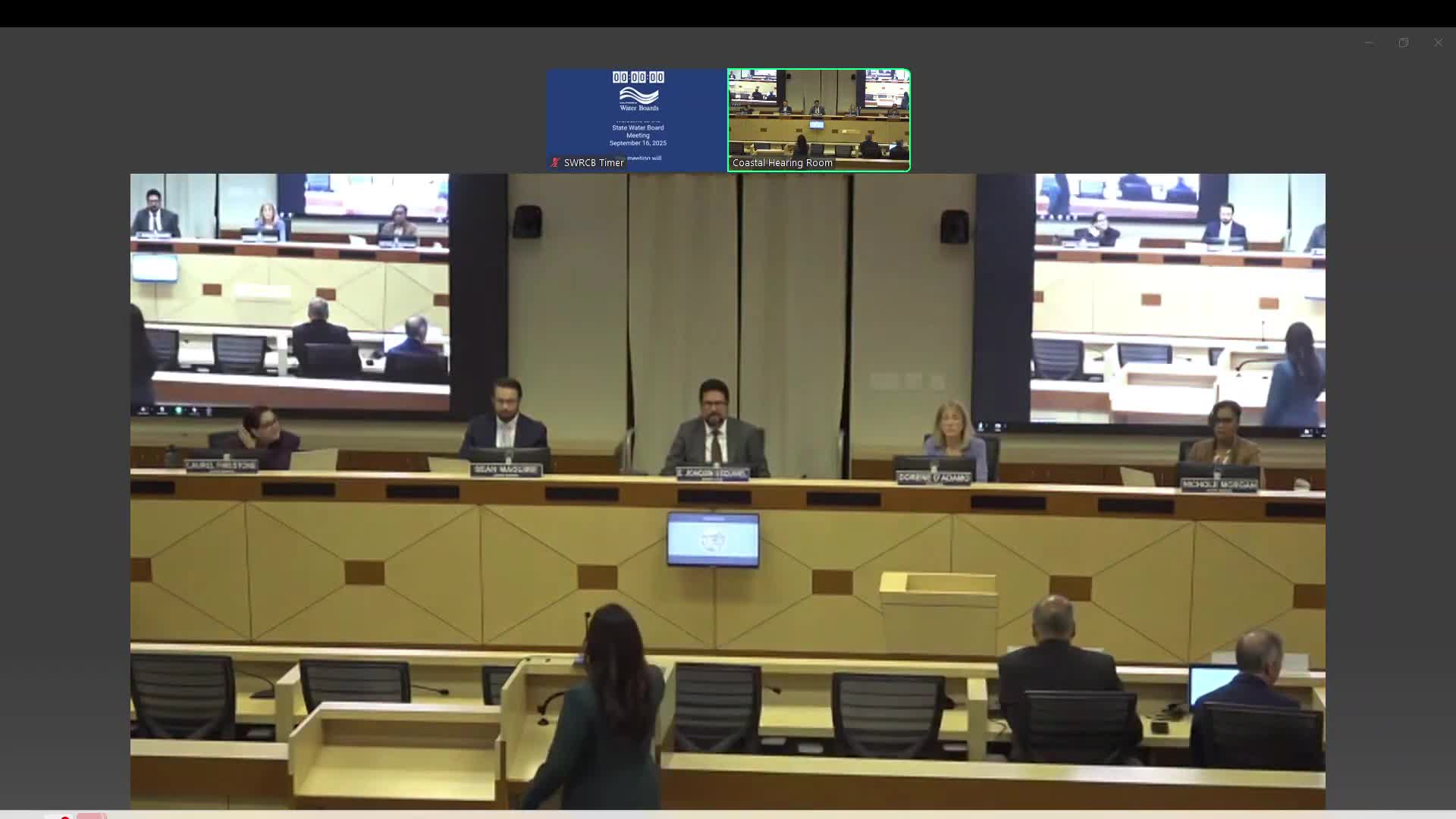Article not found
This article is no longer available. But don't worry—we've gathered other articles that discuss the same topic.

State Water Board adopts fee rules; pauses new increases by using fund reserves and adjusts water‑rights fee language

Advocates accuse board of sidelining Title VI process and curtailing public review of revised Bay‑Delta plan

Californian urges state action to regulate small private water systems after disputed rates and infrastructure costs

